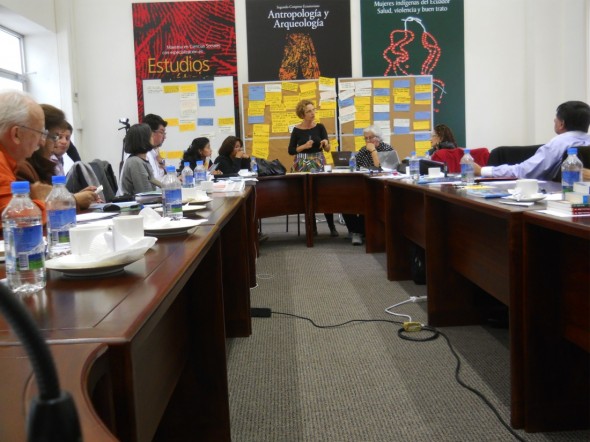On May 11, the UN Special Rapporteur on the Right to Adequate Housing promoted at the headquarters of FLACSO (Latin American School of Social Sciences), in Quito, Ecuador, a consultation on the main land policy experiences and planning instruments in Latin America aimed at strengthening security of tenure of the urban poor. Public managers, legislators, researchers, scholars, and NGOs and social movements’ activists from countries such as Ecuador, Argentina, Bolivia, Chile, Colombia, El Salvador, Honduras, Mexico, Panama, Peru, Uruguay and Brazil took part in the consultation. These experts and managers were in Quito for the Foro Latinoamericano sobre Instrumentos Notables de Intervención Urbana promoted by Lincoln Institute in May 6-10.
Its purpose was to collect and analyse experiences related to strengthening the security of tenure of the urban poor population in Latin America, and to evaluate the effectiveness of public policies in the region in order to recognize, ensure and strengthen access to secure tenure. The discussion benefited from the presentation of papers and debates provided by the Lincoln Institute seminar. The first activity of the day was a discussion that sought to identify the main obstacles to ensure tenure recognition, to guarantee continuity of secure tenure in informal settlements, as well as to provide access to well-located urban land for the poor.
Having identified the obstacles, four critical thematic groups were formed: the hegemony of the market and the land’s treatment as a commodity; the prominence of homeownership ideology in the forms of tenure; the emphasis on individual housing solutions (credit subsidies and divorce from urban aspects); and the prevalence of corrective actions (such as land regularization programmes). During the afternoon, each theme was discussed exhaustively and proposals and recommendations were made related to legal framework, instruments, normativity, process, knowledge and information, seeking to trace possible strategies to overcome them.
The results of this and other consultations will play a helping role in establishing guidelines and recommendations on security of tenure.
To see more photos of the event, click here. The report of the consultation is available in our virtual platform.

Leave a Reply